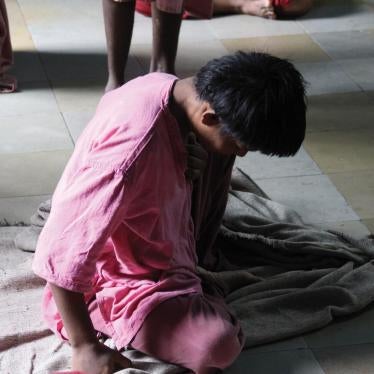Imagine being dragged against your will to a room where you can hear women screaming. You aren’t told what is happening to you. You are held down in a chair, given an injection, have cotton stuffed in your mouth, then given a jolt of electricity through a band wrapped around your head. Imagine waking up on a mattress on the floor half an hour later feeling dazed and confused, only to discover you have soiled yourself but don’t remember why. This is the reality of electroconvulsive therapy (ECT), under anesthesia but without consent in India.
If you visit a psychiatric hospital in India, you will be told that ECT is administered only to those who have been unresponsive to other treatment or to people with certain mental health conditions. However, our research has found that ECT is being prescribed for a range of conditions and is even used to keep “unmanageable” patients in check. In some hospitals, it is common for all newly admitted patients to go through ECT.
I couldn’t even begin to comprehend this ordeal without anesthesia. Yet, according to one study, an estimated 52 percent of those receiving ECT at 33 institutions across India got no anesthesia or muscle relaxants. The UN’s expert on torture has noted that unmodified ECT (without anesthesia, muscle relaxant, or oxygenation) is an unacceptable medical practice that may constitute torture or ill-treatment, as it may cause adverse effects such as cognitive deficits and loss of memory.
One woman with schizophrenia living in one of India’s psychiatric hospitals told me, “I said to the doctor that I’ve had enough of shocks, I can’t take it anymore. I told the doctor again today but I still got shocks. The shocks suppress my memory.”
ECT is even used as a threat to coerce people to take their medicines or as a punishment for not listening to staff instructions. A nurse in a psychiatric hospital told me, “We say, ‘we will take you to the ECT room’ and immediately they say, ‘please don’t take me to that room, I won’t do that again.’”
Sadly, unmodified ECT is carried out in many countries - from Ghana to Turkey - on men, women, and children. The UN’s expert on torture has called for a ban on all forced treatment, including involuntary ECT.
India should take the lead in stopping this abusive practice.
The Indian Psychiatric Society meets this weekend and should take a strong and clear stand against unmodified ECT and the use of ECT without free and informed consent. Doctors and advocates continue to debate the effectiveness of both modified and unmodified ECT, with no real conclusion. But what is clear is that countless people are forced to undergo such treatment against their will and with possible serious side effects. Shocking without consent should come to an end.






